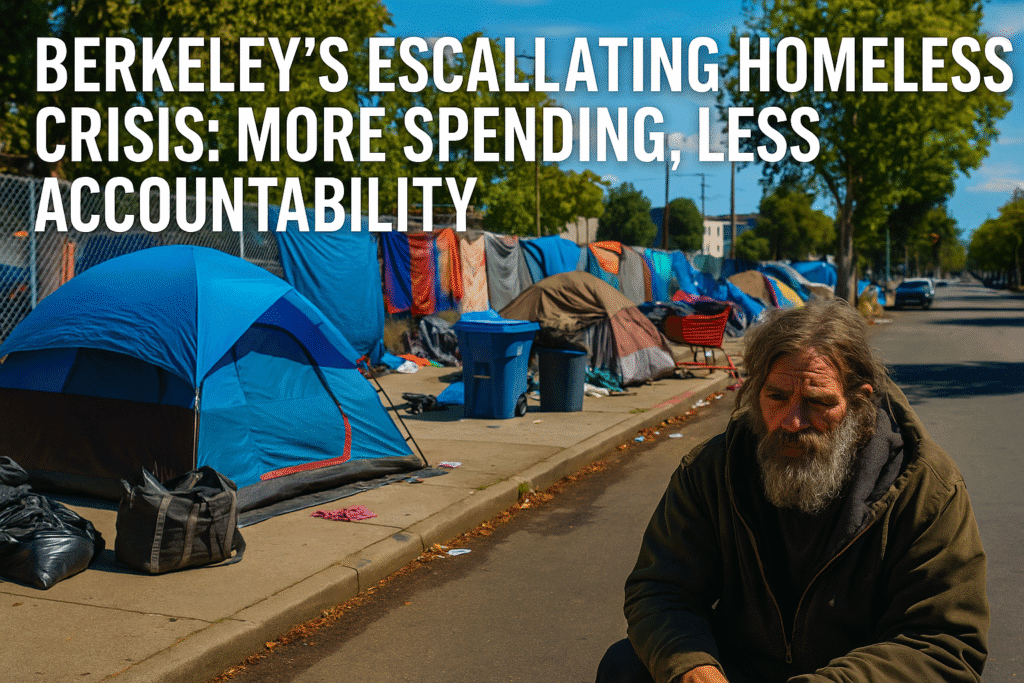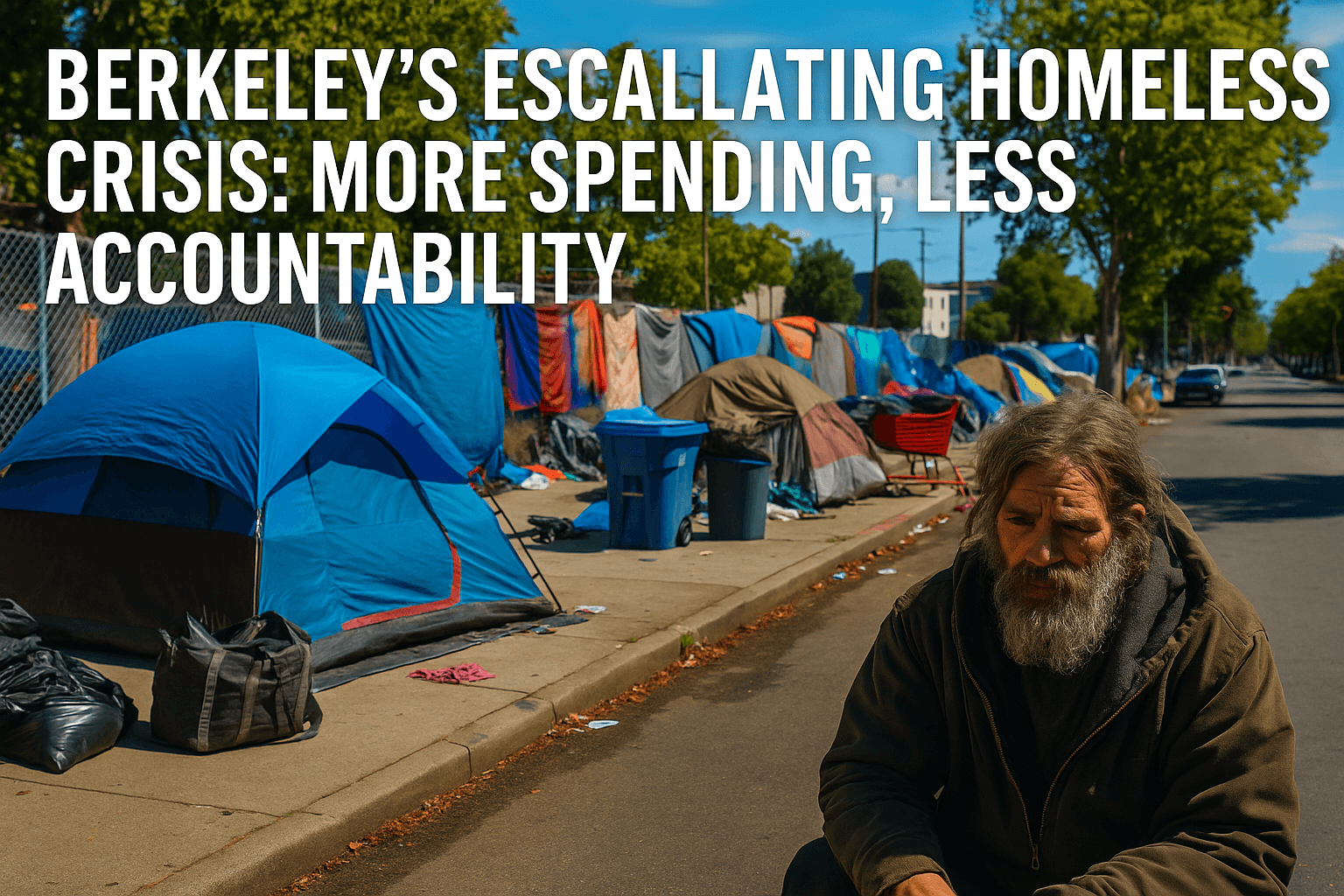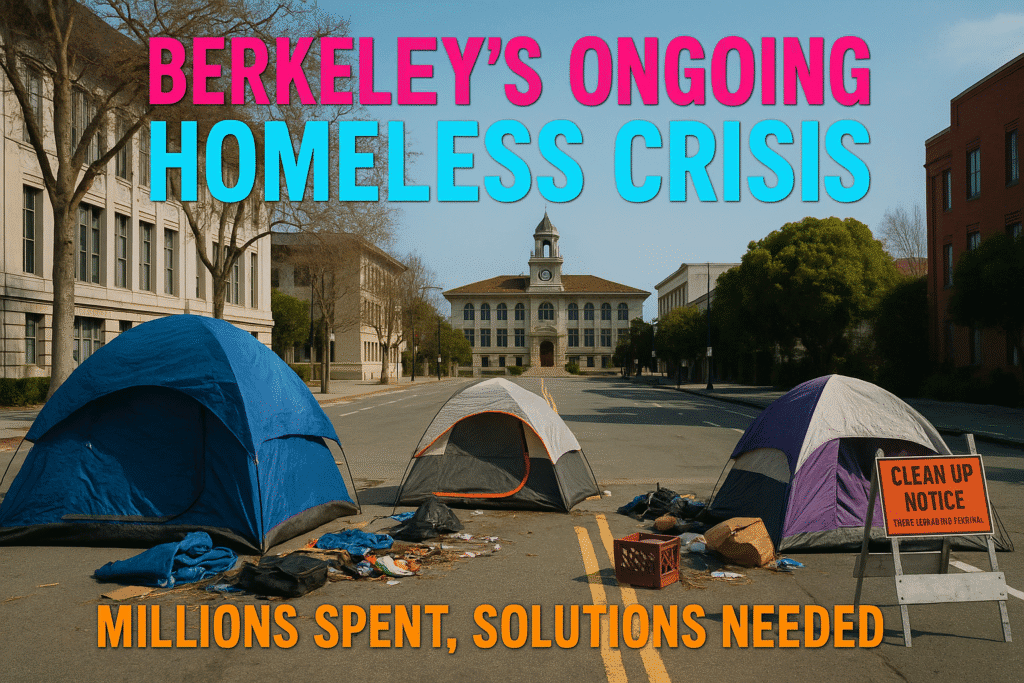Berkeley’s Escalating Homeless Crisis: More Spending, Less Accountability


On June 30, 2025, the Berkeley City Council voted to approve an additional $5 million in emergency funding for homeless services, a move cheered by activists and progressive city leaders. Yet for many local residents, taxpayers, and small businesses, the decision has fueled fresh concerns about the city’s approach to homelessness—one marked by spiraling spending, declining public safety, and a lack of meaningful results.
As Berkeley doubles down on the same policies that have failed for years, it’s time to ask: Are we helping people, or just enabling a crisis that’s spiraling out of control?
A City in Crisis
Berkeley’s homelessness crisis is impossible to ignore. Tents and encampments line major streets, parks, and even residential neighborhoods. Public spaces once enjoyed by families and children are now occupied by makeshift shelters, discarded belongings, and, too often, the visible signs of addiction and mental illness.
The city’s homeless population has grown steadily over the past decade, despite tens of millions of dollars in spending on shelters, outreach, and social services. According to recent estimates, more than 1,000 individuals are now homeless in Berkeley—a staggering number for a city of just over 120,000 residents.
The Cost of Compassion Without Accountability
Berkeley’s progressive leaders pride themselves on their compassion and generosity. With this latest $5 million allocation, the city will have spent nearly $30 million on homelessness in the past five years. Yet, despite these eye-popping figures, the crisis has only worsened.
Where is the accountability? Where are the metrics for success? For every new dollar spent, there seems to be another tent on the sidewalk, another business closing its doors, or another resident feeling unsafe in their own neighborhood. The city’s policies, while well-intentioned, often lack the tough love and structure that are necessary to make real progress.
The new funding is earmarked for emergency shelter beds, mental health outreach, and addiction services. But similar programs have been funded before, with little to show for it. Rather than demanding results, city leaders continue to throw money at the problem and hope for a different outcome.
Impact on Small Businesses and Families
The consequences of Berkeley’s approach are visible to anyone who lives or works in the city. Small businesses near homeless encampments have reported declining foot traffic, increased vandalism, and skyrocketing security costs. Parents are reluctant to take their children to parks or libraries that have become de facto encampments.
For families paying some of the highest taxes in the nation, this is a bitter pill to swallow. The sense of community and safety that once defined Berkeley is eroding, replaced by frustration and a feeling of helplessness.

A Better Way Forward
There is a better way. Cities across America that have successfully addressed homelessness combine compassion with accountability. Instead of merely funding shelters and services, they enforce anti-camping laws, connect individuals with treatment, and require participation in programs as a condition for assistance.
Conservative leaders have shown that it is possible to reduce homelessness without sacrificing safety or quality of life. Houston, Texas, for example, has made headlines by prioritizing housing, job training, and strict enforcement of public order. The result: a dramatic reduction in homelessness and a safer, cleaner city for everyone.
Berkeley can learn from these examples. Instead of perpetuating a broken system, city leaders should demand real results—measured by fewer encampments, cleaner streets, and reduced crime. Funding should be tied to outcomes, not just good intentions.
The Danger of Perpetual Crisis
The cycle of crisis and emergency funding is not sustainable. Every year, the city pours more money into homelessness, yet the situation worsens. This approach is not only unfair to taxpayers but cruel to the very people it aims to help.
Enabling people to remain on the streets, without structure or accountability, is not compassion—it’s neglect. True compassion means helping people get off the streets, overcome addiction, and rebuild their lives. That requires tough decisions and a willingness to challenge the status quo.
Conclusion
The Berkeley City Council’s latest funding decision is a missed opportunity to chart a new course. As the city spends millions more with little to show for it, residents and business owners are left wondering when, if ever, their leaders will take real action.
It’s time for Berkeley to try a different approach—one that combines compassion with accountability, and generosity with common sense. Until then, the city’s homelessness crisis will continue to grow, and the Berkeley that so many have loved will remain under threat.
Sources:













